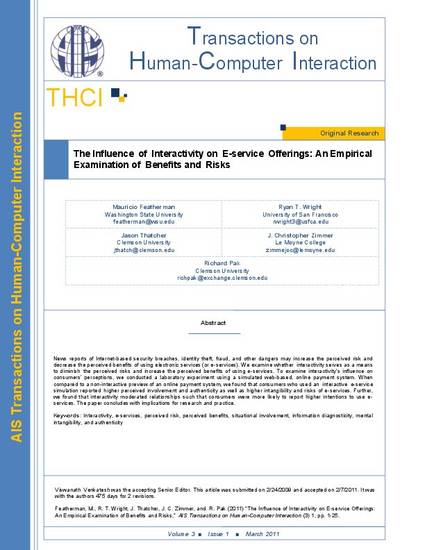
News reports of Internet-based security breaches, identity theft, fraud, and other dangers may increase the perceived risk and decrease the perceived benefits of using electronic services (or e-services). We examine whether interactivity serves as a means to diminish the perceived risks and increase the perceived benefits of using e-services. To examine interactivity’s influence on consumers’ perceptions, we conducted a laboratory experiment using a simulated web-based, online payment system. When compared to a non-interactive preview of an online payment system, we found that consumers who used an interactive e-service simulation reported higher perceived involvement and authenticity as well as higher intangibility and risks of e-services. Further, we found that interactivity moderated relationships such that consumers were more likely to report higher intentions to use e-services. The paper concludes with implications for research and practice.
Available at: http://works.bepress.com/jason_thatcher/11/
